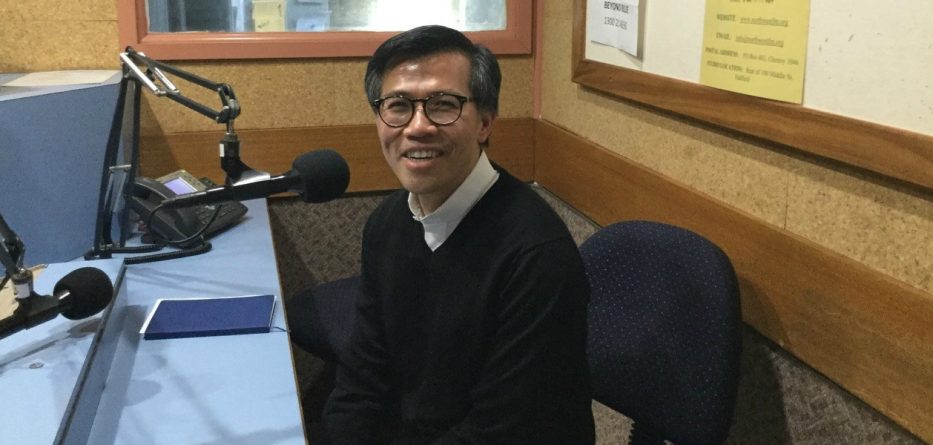ACRATH (Australian Catholic Religious Against Trafficking in Humans) is running a campaign in several community languages across Australia to alert workers to action they can take if they are being seriously exploited at work.
The Radio and Print Project (RAPP) is focussing on the Chinese, Korean, and Vietnamese communities to support people who may not know what services are available to them if they are being exploited.
Community Service Announcements (CSAs) in the three languages have been provided to radio stations, including community radio, and information has also been disseminated to the print media.
ACRATH was fortunate to have the support of three people who did the translations and recorded the CSAs. The volunteers include:
- Sr Bernadette Cheng FMM, a leader in the Catholic Chinese community in Melbourne, provided support in Mandarin.
- Fr Thinh Nguyen, formator at Corpus Christ College in Melbourne, provided support in Vietnamese.
- Mrs Magdalene Ri provided support in Korean
ACRATH’s executive officer Christine Carolan said the campaign offered support to people who speak little English and who are being forced to work in seriously exploitative conditions. She said the announcements alerted people to employment situations that are against the law in Australia and encouraged victims to seek help.
The announcements and print material provide a phone number for the Australian Federal Police and also offer people free legal assistance from Anti-Slavery Australia.
“We know that there are people in Australia who are working under harsh and unjust conditions, who may have come here thinking they were going to be employed fairly, but who end up being paid very little money or end up owing their employer a bond that they never knew about,” Ms Carolan said.
“Forced labour is very real in Australia. There have been several well publicised incidents of people in domestic service, construction, agricultural work and sex work who have been forced to work in seriously exploitative conditions.”
Some indicators that a person is suffering serious exploitation include that the worker is being:
- Forced to do the work
- Threatened or hurt at work
- Not being allowed to leave the workplace
- Working long hours with few days off
- Any documents being withheld by the
“Some people arrive in Australia to do construction work or to work on a farm only to discover they are paid a few dollars a day and have to pay most of it in accommodation. They are trapped and in many cases don’t even know there is help,” Ms Carolan said.
Forcing someone to work under these circumstances is a crime and there are several way to seek support and advice, including:
- The Australian Federal Police (AFP) 131 237
- Anti-Slavery Australia can give free and confidential legal advice or refer people to other agencies. Phone 02 9514 8115 or go to antislavery.org.au
- The Fair Work Ombudsman can provide information on work rights and entitlements on 131 394
With thanks to ACRATH.








